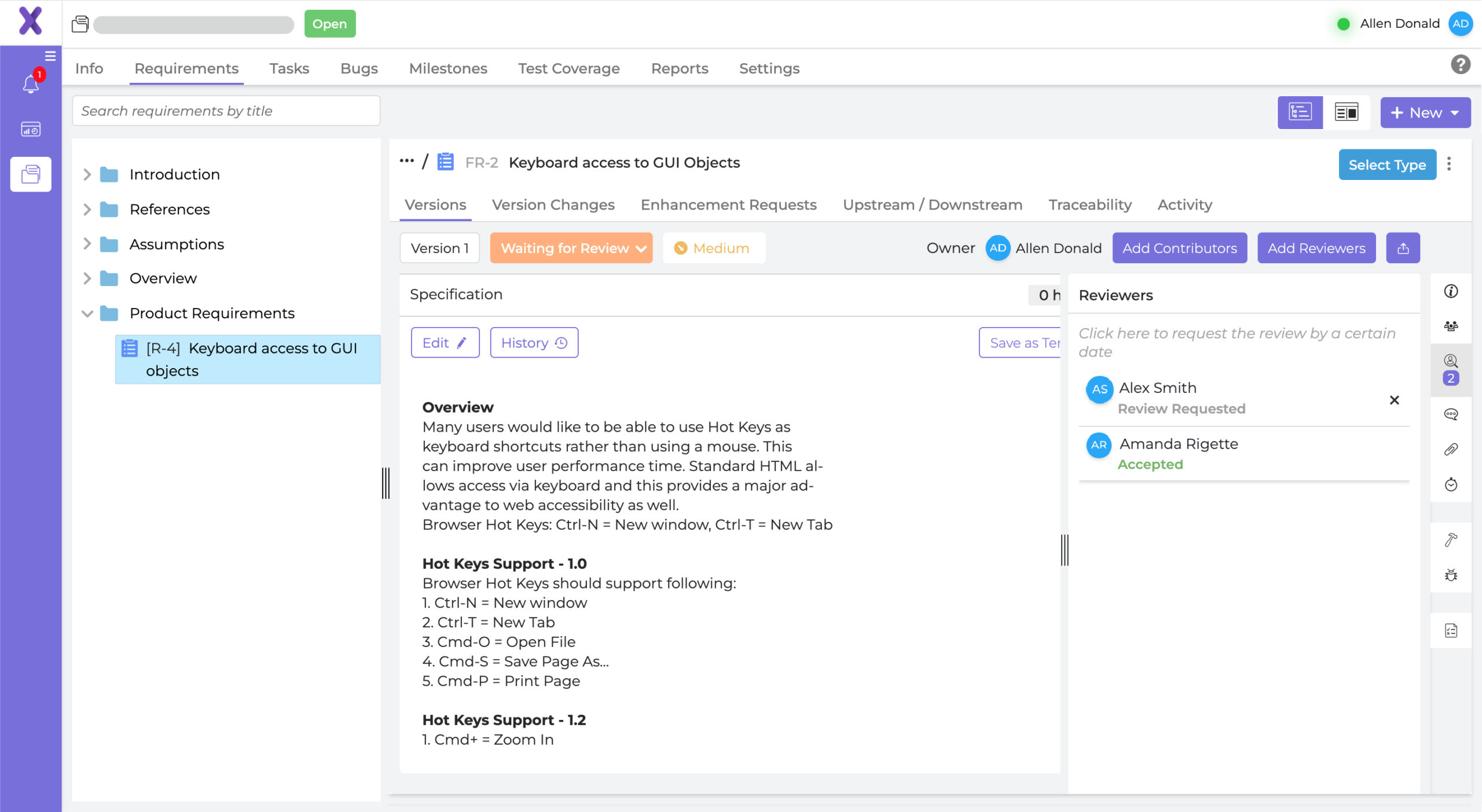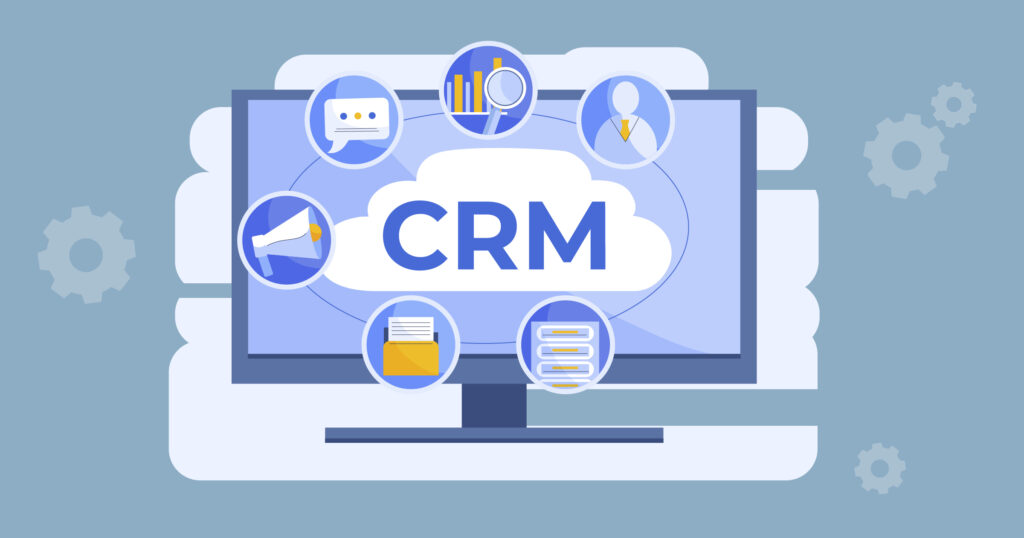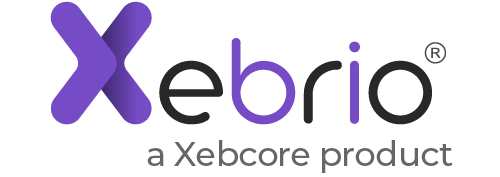The world of start-ups is a fast-paced environment. As an entrepreneur, you have to make and execute your decisions in the blink of an eye. In the nascent stage of growing your business, you wish to keep your costs as low as possible to save for rainy days. Some software for entrepreneurs are not just cost-efficient but also help you minimize those costs and save you time in the long run.
At this stage, you will need a perfect project management tool to manage your projects, a proper social media tool to schedule the posts, and a launch tool to spread the word about your business. So, to help you and other entrepreneurs such as yourself, we have made a list of all the best tools for business and a start-up will require to enhance their efficiency.
We have divided the best tools for entrepreneurs and start-ups into six principal categories, so go ahead and take a look.
1. Project Management Tools
Whether you’re launching a product or a service, having a project management tool in your corner is always a plus. From gathering requirements to tracking bugs to assigning tasks, no matter how distributed your teams are, you can always complete your projects within deadline and budget with the right tool.
In a start-up environment, you have to juggle multiple roles while the product can go from an MVP to its final version in the blink of an eye. In such cases, you need a strong project management tool that can scale with your organization. Here, we have listed our top picks of the best project management software for a start-up in 2023.
1.1 Xebrio

Xebrio is a complete project management ecosystem that covers every project life cycle- from requirements to deployments. Since start-ups have minimal resources at their disposal, Xebrio is the perfect tool. Its main features like requirements management, test case management, bug tracking, release management require no added integrations to complete a project. Your data remains undivided, safe, and secure on one platform.
Its collaboration and traceability feature makes it stand out from other tools. Xebrio is user-friendly and adaptable for teams of any size.
Xebrio has an ongoing offer for start-ups and small teams starting from $10/month for up to 10 users across all pricing plans. You can sign up for a 14-day free trial without providing any payment information.
1.2 Asana
Asana is a popular task management and project management tool. Asana is customizable and is suitable for team collaboration. It allows you to create an infinite number of projects and tasks with its free plan. Up to fifteen team members can use this plan, albeit unavailability of some advanced features. The drag and drop interface of the task management feature makes it easier to use the tool.
For simple task management and project management, Asana is a great tool. It, however, requires added integrations for collaborations. Asana’s pricing plans start with $10.99 per user per month.
1.3 Wrike
Wrike’s project management system allows users to add stakeholders who may or may not be a part of your core team. Users can customize workflows, set timelines, track how much time they spent working on the project. Wrike offers a free trial of 14 days. Wrike’s professional plan starts from $9.80user/month and is suitable for a team of 5 to 15 members.
1.4 Monday.com
Monday.com is a customizable project management software with good collaboration, task management, and resource management features.
It’s relatively easy to use and is intuitive with a user-friendly UI. You can integrate multiple tools like Google Drive, Slack, Trello, Dropbox, etc., for added collaboration features. Monday.com’s basic plan starts from $8/ user per month.
The only downside to using Monday.com is that it lags as you add more and more users.
1.5 Trello
More than a project management tool, Trello is primarily a task management software. Its intuitive drag and drop feature makes it a handy tool for start-upstart-ups, small teams, or even freelancers. The tool has a no-code workflow automation builder and allows its users to run over 250 automated commands per month.
Trello is adaptable and integrates well with Confluence, Slack, Dropbox, Google Drive, and other third-party apps. However, as your team grows and your projects scale, you would have to switch to a more robust project management tool.
Trello is a free tool to use. The paid plans start from $5/user/month, and you can get a 14-day free trial.
1.6 Twoproject
Twproject is a project management solution that stands out for flexibility: it adapts both to small teams and larger companies.It is very comprehensive and offers a large variety of tools, from kanban boards, to workload management, from budget planning, to a very powerful Gantt. Its approach is the right combination between agile methodology and traditional waterfall management.It is a useful tool for all the different working roles and allows a very refined distinction of job positions. It gives a constantly updated overall view of the project. Its basic license starts from €4.89 user/month.
2. Social Media Marketing Tools
Social media platforms are a go-to marketing avenue for start-ups. It has a no-cost setup and makes it easier to reach a broader and more globalized customer base than traditional marketing. The rise in the creator economy, brands can reach out to individual influencers to promote their product and grab more eyeballs. Social media marketers have a tough job of setting up, creating, and publishing content regularly. Using marketing tools as listed below will help simplify their jobs and provide more time for creativity and strategizing. Take a look at the curated list of social media marketing tools for startups.
2.1 Hootsuite
Hootsuite is the most versatile and practical platform for the everyday social media marketer. You can plan and schedule your posts weeks in advance and view them all in a calendar. The analytics feature of the platform gives you all the insights into your content, what’s working for you and what isn’t, and provides a unique insight into your most popular posts. You can also manage your social channels and monitor them through the platform. Hootsuite also allows you to monitor and engage with any mentions of your brand and respond to incoming messages, thus delivering personalized customer support.
Hootsuite offers a free 30-day trial, and the professional plan costs $29/month.
2.2 Zoho Social
Zoho Social is a social media management solution that offers a basic but robust platform for start-up marketers. Users can schedule their posts across various platforms. Based on your past data, it even suggests the best time to schedule and post your content on individual platforms. Zoho also supports social listening and lets you monitor specific keywords, mentions of your brand, hashtags, reviews, and Twitter lists about your brand. It provides insights into your social accounts and supports other CRM integrations.
The pricing for Zoho Social starts from $10 per month.
2.3 SproutSocial
SproutSocial is the most popular social media scheduling app businesses use for all their social media platforms. The interface is easy-to-use and perfect for the well-organized since this tool is the one-stop for all social media needs. SproutSocial provides analytics to monitor patterns from each social media platform and turn them into actionable insights. It is one of the best tools for small businesses for social media marketing.
SproutSocial’s standard plan starts from $89 to get you started.
2.4 Buffer
Buffer is a social media scheduling tool that start-ups can use to manage their social media accounts. It has a clean interface that teams will find easy to use.
Its key features include helping you improve what’s working and what isn’t for your team and helping you improve the content you put out. The scheduling feature helps you schedule your posts in advance so you can focus on other tasks at hand. Buffer also gives you insights into how your posts perform in terms of engagement, reach, and followers.
Buffer’s pricing may be too expensive in the long run. Its Buffer Reply and Buffer Analyze require an additional subscription, which other tools offer for free. The pricing is $5/month per social channel.
2.5 Creator Studio
Creator Studio is Meta’s free dashboard that marketers and content creators can use to plan, create, and schedule their Facebook and Instagram posts. Anyone with a Facebook account can use Creator Studio to publish their posts. It offers analytics and insights into how your posts perform on the apps. You can set up monetization tools and track your earnings. The only downside to the Creator Studio is that you can only publish your posts on Facebook and Instagram. If you want to use Twitter or any other platform, you will resort to other tools.
Creator Studio is free of cost. You can use it once you sign up for Facebook.
2.6 InVideo
InVideo is a popular SaaS-based tool that content creators use to create and edit videos. The user-friendly interface makes it easier for users to match the professionalism of video editors, even if you have never edited any video before. It comes with a free and paid plan to match your requirements. It has some amazing features that take your editing to the next level. Some of the most popular features include trimming video, voiceover, converting text to video, 40+ fluid animation, audio editing features, 5000+ video templates, easy transitions, and much more.
They have a free plan, a business plan that costs $15/month, and an unlimited plan for $30/month.

3. Start-Up Launch Tools
Being an entrepreneur and launching a start-up is not an easy task. Multiple factors can affect your journey from ideation to execution. Some start-ups find success right from the start, whereas a few struggle to lift off. To help your start-up find the right investors to customers and launch in the market, take a look at the tools for startups that will help your business get the recognition it deserves.
3.1 Product hunt
Product Hunt is a brilliant platform for new businesses and start-upstart-ups. It showcases all the upcoming products that product enthusiasts can check out and discuss new websites, applications, and other tech. As a start-up owner, you can launch your product on Product Hunt. Working similarly to Reddit, users can vote on a product and share their thoughts in the comments. Users can even get a product they like at a discounted price.
You can sign up for free on Product Hunt and complete the onboarding process to upload your product on the website.
3.2 PressKite
Start-ups need press kits when they’re ready to launch their products in the market. Press Kite is one such tool start-up marketers can use. Press Kite creates a press kit that includes a brochure, media releases, logos, photographs of employees, and more for your organization to send to a journalist when marketing your product’s launch.
Press Kite offers a 14-day free trial with a 100% money-back guarantee. They have three plans from $9/month, including basic features, to $99/month, including premium features.
3.3 Beta List
Beta List is an online platform that gives its users early access to products every month. You can list your start-up for free on the platform, but only if your product is in pre-launch mode. Beta List doesn’t allow products available in the market and is open to all.
Sign up to Beta List and list your product to start your journey.
3.4 Submit.co
As a budding start-up, you require all the support you can get when launching your product, mainly generating a good PR. Submit.co, powered by Beta List, is a comprehensive list of contacts of media publications relevant to start-ups. You can turn to this website directory when you want to connect to seek media exposure. Submit.co is simply a great resource helping you in your outreach efforts.
4. Email Marketing Tools
Email marketing is an effective way to acquire and retain customers. For start-ups, email marketing is a beneficial way to drive a higher ROI, engage with their customers, promote their products and services, understand your customers’ likes and dislikes, among other things. Here are a few email marketing tools to help your business reach more customers and retain them.
4.1 Mailchimp
The moment you talk about email marketing,Mailchimp is the first name that pops up. A leader in the email marketing field, Mailchimp has one of the best servers to get you the most open and delivery rates. This tool’s learning curve is steep, and advanced automation is tricky.
Mail Chimp has a free plan for up to 2,000 contacts and has a host of features that come with this plan.
4.2 SendinBlue
SendinBlue is an email marketing and an SMS marketing software. SendinBlue’s automation lets users send transactional emails and create an automated follow-up email workflow, and help you choose the best time to send bulk emails, ensuring the best email deliverability.
SendinBlue offers a free plan to unlimited contacts and allows you to send up to 300 emails per day. Their paid plans start from $25/ month, followed by the premium plan of $65/ month, including a robust set of features.
4.3 Drip
Created specifically for eCommerce, bloggers, and digital marketers, Drip is a grade-A email marketing tool. It runs multi-channel marketing campaigns that help drive more sales without any coding requirements.
Drip has marketing automation tools, email segmentation, split testing features, list groups, and a visual drag and drop builder for automation workflows. These features allow you to target your customers and reach them more easily to hit your sales target.
Drip’s offers a 14-day free trial and doesn’t ask for your credit card information. Its basic plan starts from $19/month.
4.4 HubSpot
HubSpot‘s all-in-one marketing solution helps marketers perform all their marketing operations with one tool. This tool includes email marketing, CRM, CMS, operations, and sales.
It truly is one of the best software out there today. You don’t require any coding experience to use this tool. You can use your own HTML emails or use one of Hubspot’s templates, schedule emails up to one year in advance, and offers automated sales and marketing workflows, taking out the manual labor.
HubSpot’s marketing bundle starts from $45/month when billed yearly.
5. Search Engine Optimization (SEO) Tools
As a budding start-up, it is always a plus if you invest in a search engine optimization (SEO) tool well in advance if you wish your website to feature predominantly in search engines. Since most start-ups do not have enough resources to invest in ads, focusing on improving your site’s SEO is always beneficial. You can consider the following SEO tools for your start-up.
5.1 Ahrefs
Ahrefs can be defined as a one-stop tool you need to rank your website higher and get more traffic. With Ahrefs, you can audit and optimize your website, analyze your competitors, explore keywords and content, and track your ranking progress. It is also one of the best tools for link building and building your businesses’ website authority.
The plans for Ahrefs start from $99/month with additional taxes depending on where you subscribe.
5.2 SEMrush
If your start-up has the budget to invest in an all-in-one tool, SEMrush is the tool for you. WithSEMrush, you can perform competitor keyword research, site audits, fix any SEO errors on your website, get new keyword opportunities, etc. It is an essential tool for start-ups to understand their competitors’ strategies to rank in the search engines.
SEMrush pricing plans start from $99/month for small teams and $191/month for SMEs and growing agencies.
5.3 Google Analytics
Offered by Google, Google Analytics tracks your website and app’s performance. It tracks a user’s journey from the time they interact with your website to when they exit it. It also provides how much time they spent on your website. Google Analytics is especially useful for e-commerce start-ups as it gives you a clear idea of your customers’ purchasing behaviors.
Google Analytics has a steep learning curve, but once you know the metrics that work for your website and master the tool, it will be your go-to tool for marketing.
You can sign up for Google Analytics free of cost.
5.4 Moz
Moz offers SEO solutions to help you increase traffic, ranking, and search results visibility. Its keyword ranking tool helps you to track traffic fluctuations. Moz also has a site audit feature to identify SEO errors and fix them.
Moz has a chrome extension to check competitors’ domain authority, page authority, and backlink profile.
Moz offers the MozBar, link explorer, domain analysis, and more features for free. Their standard plan starts from $79/month when you subscribe to their yearly plan.

6. Customer Relationship Management (CRM) Tools
Every type of business benefits from customer relationship management (CRM), especially start-ups. Start-ups need a more flexible CRM packed with features that will scale as their business scales with minimal cost and affordable subscription plans with automation tools to generate more business and gather leads. Check out the best CRM tools for start-ups as listed below.
6.1 EngageBay
EngageBay is a startup and small business CRM tool that helps businesses manage and grow customer relationships. It offers a variety of features, including contact management, lead tracking, sales pipeline management, workflow automation with custom nodes, Live Chat, and more.
EngageBay sets itself apart from other CRM tools due to its affordability, making it a great option for businesses on a budget.
EngageBay is also easy to use, thanks to its intuitive interface and drag-and-drop functionality. Even if you’re not familiar with CRM tools, you’ll be able to get your CRM department up and running quickly with EngageBay.
EngageBay CRM is free to use forever, with up to 15 users per account, and their basic plan starts at $12.99 a month.
6.2 HubSpot
HubSpot CRM is an easy-to-use tool with a straightforward interface and offers workflow automation, email tracking, meeting scheduling, live chat, and more.
HubSpot offers free resources such as free courses, tutorials, videos with certifications in the sales and marketing field.
HubSpot CRM is free for all, with a plethora of features available at your disposal. Their Starter plan begins from $45/month.
6.3 Pipedrive
Although new to the CRM space, Pipedrive was built for start-upstart-ups to visualize their sales processes.Pipedrive was built around activity-based selling and sales pipeline that you can customize suited to your start-up’s sales processes. You can add your sales stages, activities, and team members.
It’s an ideal intuitive CRM for fast-moving start-upstart-ups. Pipedrive doesn’t have a free plan but offers a 14-day free trial with their paid plans starting from $12.50/month.
6.4 Zoho CRM
A robust CRM,Zoho CRM offers lead generation, pipeline management, reporting and analytics, marketing automation, lead management, and more.
You can read, manage, and respond to messages you receive on phone, email, live chat, and social platforms with the unified inbox. It integrates with social media platforms like LinkedIn, Facebook, and Twitter, thus allowing you to monitor messages and generate leads.
Zoho CRM has introduced Zoho Bigin, a pipeline-centric CRM built and priced specifically for small businesses. It has a free plan followed by its Express plan and Premier plan.
On the other hand, Zoho CRM’s paid plan starts from $14/user per month with a 15-day free trial.
6.5 Agile CRM
Built for freelancers and small to mid-sized organizations, Agile CRM is an all-in-one CRM tool to automate your marketing, sales, and services in one platform.
Some of the features that are paid in other CRMs are available for free in Agile CRM, such as a lead generating tool, a meeting scheduler, custom deal milestones, and more.
It offers other features categorized in sales and marketing, such as contact management, project management, scheduling appointments, integrating social media to CRM to generate leads, and a landing page builder.
Agile CRM has a free plan followed by a paid plan called Starter for $8.99, Regular for $29.99, and Enterprise for $47.99.
Conclusion
There you go! A consolidated list of the best tools for your start-up. Every tool mentioned in this list would benefit you and your teams. Whether it’s to publish on your social media or track how well your website is performing, you can turn to any tool in this list to help you scale your business.
If you continue to use them consistently, you will experience the sustainable growth and success you desire for your business.
If we missed out on any tool you think should be included here, let us know in the comments below.






0 Comments